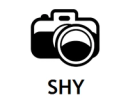
One Drop is a company that has a great holistic service using CDE to help patients get their diabetes better controlled, and recent data support their mission.

Timothy Dy Aungst, PharmD, is an associate professor of pharmacy practice at MCPHS University. He graduated from Wilkes University Nesbitt School of Pharmacy and completed a PGY-1 Pharmacy Practice Residency at St. Luke's University Hospital, and then a Clinical Geriatric Fellowship at MCPHS University. He is passionate about the rise of technology in health care and its application to pharmacy. He has published primarily on the role of mobile technology and mHealth, and made multiple national and international presentations on those topics. He blogs at TheDigitalApothecary.com, is a Co-Host of FurtureDose.tech a podcast part of the Pharmacy Podcast Network, and you can find him on Twitter @TDAungst.

One Drop is a company that has a great holistic service using CDE to help patients get their diabetes better controlled, and recent data support their mission.

Cost is a large barrier for taking medications for many patients. So what is one large pharmacy chain looking to do to help the problem?

With the growing use of digital patient identification to conduct business it comes as no surprise that many people have sought to take advantage of Medicare members.

For years, organizations have requested that Medicare change Medicare IDs from Social Security numbers, and now they are doing it.

The health insurer recently launched its Emerging Solutions' platform.

Amazon will not pursue medication distribution to hospitals, due to several issues that have crept up, based on current media analysts.

The FDA recently released a new app to highlight newly approved drugs, and to give users some quick information on medications. The app, more or less, is a lighter version of their Drugs@FDA website.

A recent study raises the question of whether this unusual idea could be widely adopted.

Smart Inhalers have been around for awhile, but have been consigned to use primarily in clinical trials. One company is bringing them to the OTC market.

The pharmacy industry continues to come to terms with the failure.

With the advent of their new smartwatches, Fitibit is looking to add new features to their apps, including a women's health mechanic.

Recently, Facebook was in the spotlight for trying to share patient data with health organizations.

The FDA recently released a warning for a company whose business is focused on creating online prescriptions for patients doing a home vision test. But the concern is that this is a medical device, which never got clearance.

Getting rid of the needle in injectables has been in the talks for awhile, but Takeda is trying to make it a reality.

Services such as Uber and Lyft that help get patients to their medical appointments could also bring patients to their pharmacies.

Several companies are getting into the drug kiosk business, and I highlight a couple of startups.

Recent news has highlighted the use of ride-sharing companies looking to get into the health space, and now CVS and Walgreens are jumping on board. But is it really just to help them get their medications or is it something more?

While there are multiple apps out there to help women track their menstrual cycles, little in the way of actual devices have entered the market, but Ava is aiming to shake things up.

Smart socks, such as those from Siren, seek to help identify infections, and ulcers before they happen, but the data is lacking. Are they worth it?

The government's new initiative aims to empower patients by letting them have better access to their data.

The search giant is stepping back into the medical data arena with a system to manage patient information.

When these are hard to navigate and read, it can lead to nonadherence or other issues for patients, but this is a step in the right direction.

The 2018 Accenture survey on technology and healthcare shows a steady increase in utilization by consumers for their health.

Direct-to-consumer genetic testing is becoming a hot field, and while 23andMe is making some good press, companies like Helix are putting some pressure for how to use that data.

Novartis makes a move in the digital health field, and we may see more traction with pharmacological treatments and technological platforms.

Basic Care's products are cheaper to buy in bulk compared with other store brands.

Medical schools are working to bring AR and VR technology into the classroom. Could pharmacy do the same?

News and internet forums are filled with ride-sharing drivers who have taken patients to the hospital or the doctors.

Many small health start-ups are leveraging digital health and telemedicine services to provide patient coaching. A new study from one company demonstrates that users could see as much as a 0.8% reduction in A1c.

The online retailing giant has its own brand of nonprescription drugs. Can it compete?